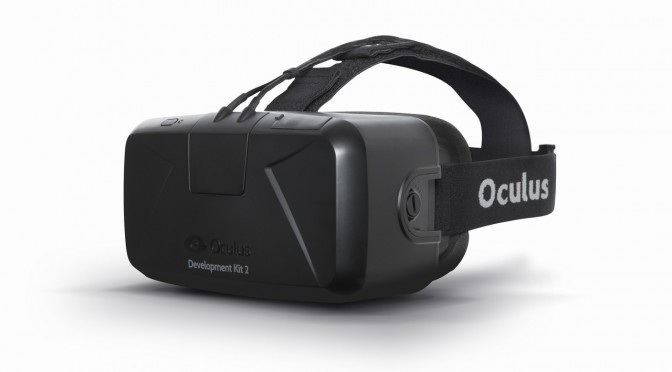Seems that Oculus’ Palmer Luckey is doing his best to answer as many questions as possible these days, especially after that ‘$349’ price fiasco for the Oculus Rift. In his latest Reddit AMA, Palmer explained what is considered Oculus Exclusive, the quality of the Oculus Rift’s displays, as well as how important the actual content is for the Oculus Rift.
As Palmer said, the Oculus Rift will feature the most accurate displays for a VR headset you’ll find in 2015.
“Our OLED displays and control over the viewing environment make it one of the most accurate displays you can get. In the near future, VR displays are going to surpass traditional displays in almost every way.”
Palmer then said that the displays are calibrated out of the box, meaning that PC gamers won’t have to manually calibrate them in order to get the best results, and that ever user will be getting the same image.
But what about a virtual desktop? That does sound like a cool idea, right? Well, although there is nothing officially announced for it yet, Palmer did say that there are several people building virtual desktop applications right now.
“There are several people building virtual desktop applications. The biggest limitation is resolution per degree and lack of 1:1 pixel mapping compared to traditional displays. You can do it, but applications like PS and Maya are better on a normal monitor for now.”
Palmer also wanted to make it crystal clear that the games/applications that are listed as exclusive to Oculus are not exclusive to the Oculus Rift. Other VR headsets will be able to run these games/applications (provided the companies making those headsets allow Oculus to support them). Oculus does not intent to lock its software to the Rift. However, these games/applications will be available exclusively from the Oculus Store.
“When we say “Oculus Exclusive”, that means exclusive to the Oculus Store, not exclusive to the Rift. We don’t make money off the Rift hardware, and don’t really have an incentive to lock our software to Rift. That is why the Oculus Store is also on Samsung’s Gear VR. Gear VR and the Rift are the first consumer VR devices coming out, but in the future, I expect there will be a wide range of hardware at a variety of price and quality points, much like the television and phone markets.”
As Palmer noted, Samsung’s GearVR headset supports Oculus’ software.
“Currently, the only headsets that run content from the Oculus Store are Samsung’s GearVR and the Rift. If and when other headsets come out in the future, and if and when the companies making those headsets allow us to support them, you might see wider support, but we have to focus on launching our own products right now.”
Last but not least, Palmer claimed that PC gamers will be able to download and run games from outside the Oculus store, and explained how important the actual content is for Oculus.
“Currently, a large one. Remember that a few years ago, we were the only players in the VR game. We had to make sure there was content for our device, and we have invested a lot of our resources into making that happen through both Oculus Studios and third parties. In the long run, though, I hope that the VR market is successful enough to not require huge content investment from us – if that happens, our risk goes down, and our profits go up. In the meanwhile, anything we make is going to go through our store. That way, the distribution cut also goes to us instead of someone else, which helps us pay our employees, give financial and development aid to game devs, and keep the price of our hardware as low as possible.”

John is the founder and Editor in Chief at DSOGaming. He is a PC gaming fan and highly supports the modding and indie communities. Before creating DSOGaming, John worked on numerous gaming websites. While he is a die-hard PC gamer, his gaming roots can be found on consoles. John loved – and still does – the 16-bit consoles, and considers SNES to be one of the best consoles. Still, the PC platform won him over consoles. That was mainly due to 3DFX and its iconic dedicated 3D accelerator graphics card, Voodoo 2. John has also written a higher degree thesis on the “The Evolution of PC graphics cards.”
Contact: Email

